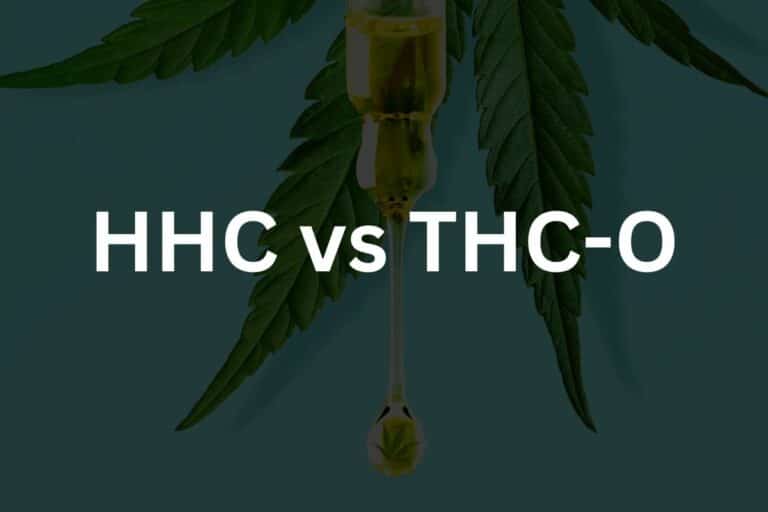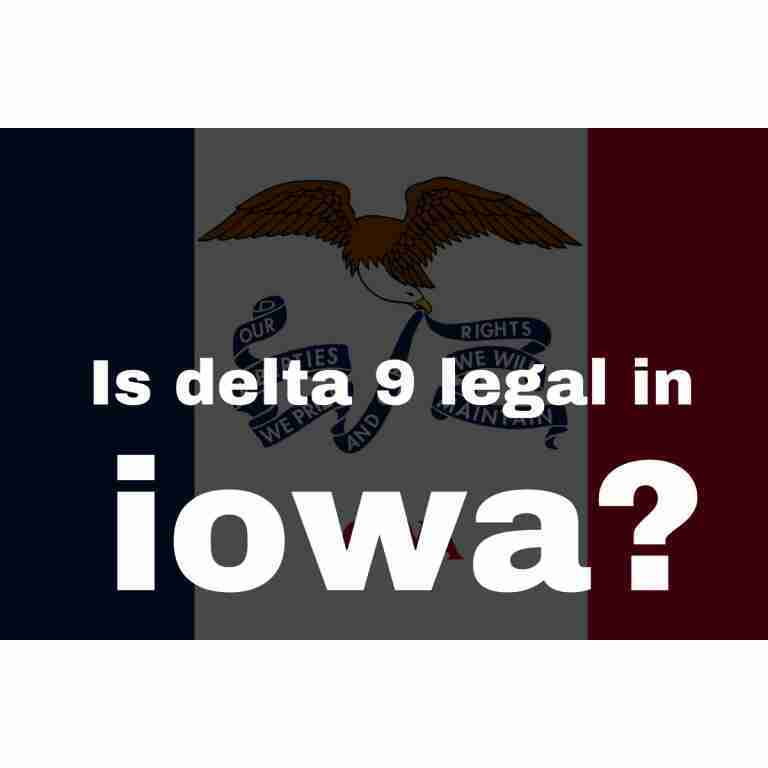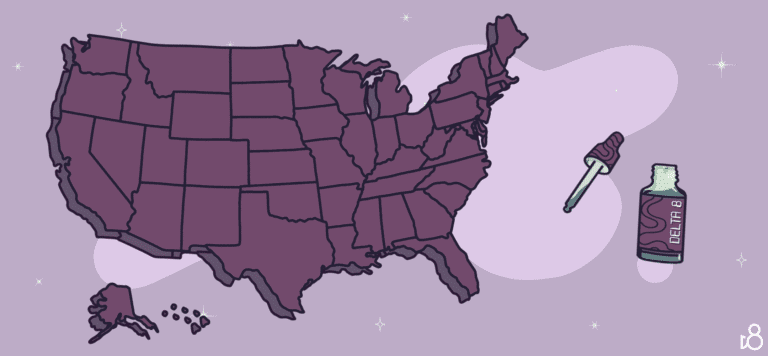Is Delta-11 THC Legal in New York? Navigating State Regulations
Diving into New York’s cannabis laws feels like embarking on an epic journey, full of surprises around every corner! Picture stumbling upon a myriad of compounds, each governed by their own set of guidelines. Now, focus on Delta-11 THC. This star of the show plays a huge role, and knowing if it’s thumbs up or thumbs down in New York is crucial, especially since the guidelines for cannabinoids are always shifting. Stick with me, and I’ll guide you through the maze of rules, making sure you’re updated on Delta-11’s standing.
- Legality of Delta 11 in New York
- Understanding Delta 11 and Its Legal Status
- Comparative Legality in Other States
- Hemp-Derived Products and Legal Considerations
- Health and Safety Concerns of Delta 11
- Consumer Guidance on Delta 11 Products
- Regulatory and Enforcement Perspectives
- DEA's Stance on Delta 11
- FDA Regulation on Hemp-Derived Compounds
- Frequently Asked Questions
- What are the legal implications of purchasing Delta 11 products in New York?
- Can Delta 11 be legally possessed and used in New York state?
- How does Delta 11 compare to Delta 9 in terms of legality in New York?
- Are there any specific regulations governing the sale of Delta 11 in New York?
- Does the use of Delta 11 lead to psychoactive effects similar to other cannabinoids?
- Will the consumption of Delta 11 result in a positive drug test in New York?
New York’s cannabis laws have undergone significant reforms, particularly following the legalization of adult-use marijuana. However, with the passing of the Farm Bill in 2018 at the federal level, cannabinoids derived from hemp, such as CBD, have generally been considered legal. This extends to some THC analogs that are chemically similar to Delta-9 THC, the main psychoactive component in marijuana.
Still, the legality of specific compounds like Delta-11 THC often hinges on interpretations of state and federal law, as well as the way they are sourced and produced. Due to the nuances in the legislation, it is essential to be informed about the current legal framework in New York to ensure compliance with state laws.
Legality of Delta 11 in New York
When considering the legality of Delta 11 in New York, it’s essential for you to understand how state and federal laws intersect, the implications of the 2018 Farm Bill, and the specific regulations New York State has put in place regarding hemp-derived compounds.
State Law vs Federal Law
Federal law under the Controlled Substances Act (CSA) has historically categorized all tetrahydrocannabinols (THC) as Schedule I controlled substances. However, state laws can vary significantly. In New York, state legislation often runs independently from federal guidelines, causing a divide in enforcement and regulation practices. This means that while a substance may be legal at the state level, it can still be prohibited under federal law.
2018 Farm Bill Impact
The 2018 Farm Bill brought a significant shift by removing hemp, defined as cannabis with less than 0.3% THC on a dry weight basis, from the CSA. This legalized hemp-derived products at the federal level. Federal law does not specifically address Delta 11, but it implies that hemp-derived tetrahydrocannabinols, which include Delta 11 if extracted from legal hemp, could be legal.
New York State Regulations
In contrast to federal regulations, New York State law stipulates more stringent guidelines. While New York has embraced certain hemp-derived products, the state’s stance on derivatives such as Delta 11 is intricate and subject to ongoing legal interpretation and legislative amendments. It’s incumbent upon you to stay updated with the New York State regulations as they evolve to ensure compliance with current laws.
Understanding Delta 11 and Its Legal Status
As you navigate the complex landscape of cannabinoids and their legality, it’s crucial to gain a clear understanding of Delta 11 THC and its unique position within this framework.
Delta 11 THC Explained
Delta 11 THC is a cannabinoid found in cannabis plants, much like its more widely known counterparts Delta 8 and Delta 9 THC. This compound has psychoactive properties, which means it can produce a high when consumed. Delta 11 THC is present in various THC products, offering a distinct experience for users.
Differentiation from Other Cannabinoids
- Delta 9 THC: Commonly associated with the strong psychoactive effects of marijuana.
- Delta 8 THC: Known for a milder high and is found in lower concentrations in cannabis plants.
- CBD: Non-psychoactive, primarily used for potential therapeutic benefits.
Delta 11 THC differs from these compounds in molecular structure and potency, contributing to its unique effects and legal interpretation.
Federal Classification of Delta 11
Currently, the legality of Delta 11 THC is intricate. It falls under the same federal laws that cover all THC forms, classifying them as controlled substances. The 2018 Farm Bill stipulates that any hemp-derived cannabinoids must contain less than 0.3% Delta 9 THC on a dry weight basis to be considered federally legal. However, this leaves a gray area as the bill doesn’t explicitly mention Delta 11 or other variants, making the federal classification hazy.
Remember, while certain cannabinoids may be legal at a federal level, individual states can have their own specific regulations. Therefore, checking the current state laws of New York regarding Delta 11 THC is essential to ensure compliance.
Comparative Legality in Other States
Before diving into the specifics, understand that the legality of Delta 11 varies across the United States. Each state’s stance on Delta 11 is governed by local legislation, and this section provides information on where Delta 11 is legally accepted and where it faces restrictions or bans.
States Where Delta 11 is Legal
The legal landscape for Delta 11 can be complex, with laws varying significantly from one state to another. As of the date of this writing:
- Alaska: A state known for its liberal stance on cannabis-related products, permits the use of Delta 11.
- Colorado: Pioneering in cannabis legalization, also allows Delta 11 under state law.
- Washington: Recognizes the legality of Delta 11 with state-specific regulations in place.
Please note that while these states permit Delta 11, regulations may differ from federal laws, and staying informed about both is crucial.
States Where Delta 11 is Restricted or Banned
Just as some states have embraced Delta 11, others have strict regulations or outright bans on its sale and use. Here’s what you need to know about restrictions:
- Arizona: Despite having legalized cannabis for recreational use, has specific restrictions regarding the sale of Delta 11.
- Arkansas: Delta 11 is not legal in Arkansas, falling under controlled substances.
- Delaware: Joins the list of states where Delta 11 availability is strictly limited by law.
- Idaho, Iowa, Kansas, Mississippi, North Dakota, Rhode Island: All these states have bans or strict regulations in place, classifying Delta 11 as a controlled substance.
Please review the laws of each state as they can frequently change and always ensure compliance with local legislation.
Hemp-Derived Products and Legal Considerations
Understanding the legal landscape of hemp-derived products, particularly in New York, is essential for both consumers and producers. This section will provide clarity on the distinctions between hemp and cannabis, the standards for quality and compliance, and how state hemp laws impact the legality of compounds like Delta-11 THC.
Hemp vs Cannabis
Hemp and cannabis are both members of the Cannabis sativa family but are distinguished by their tetrahydrocannabinol (THC) content. Hemp contains less than 0.3% of delta-9 THC, the psychoactive compound associated with the “high” in marijuana. New York, like federal law, aligns with this distinction, creating a separation in how the two are regulated. Hemp-derived products, therefore, must comply with this threshold to be considered legal.
Quality and Compliance
When purchasing or selling hemp-derived products, you need to ensure that they meet strict quality and compliance guidelines. Producers must follow protocols for testing, certification, and accurate labeling to mitigate the risk of crossing legal boundaries. Adherence to standards of safety and purity is not only a matter of legality but also relates to consumer protection.
Impact of Hemp Laws on Delta 11
The legal nuances of novel cannabinoids like Delta-11 are still developing, with state laws sometimes departing from federal guidelines. New York’s stance on cannabinoids can impact the availability and legality of hemp-derived Delta-11 products within the state. As the legal landscape evolves, it’s vital to stay informed about any amendments to hemp laws that could affect Delta-11’s legal status.
Health and Safety Concerns of Delta 11
When considering the cannabinoids like Delta-11, it’s critical to understand the health and safety concerns associated with its usage. The effects—ranging from the high to potential side effects—are directly influenced by its metabolite, 11-hydroxy-THC, which is processed through your liver.
Potential Side Effects
The consumption of Delta-11 can lead to a variety of side effects. As a psychoactive substance, it is similar in structure and effect to other cannabinoids that exert a significant high. Immediate side effects may include but are not limited to:
- Altered sensory perception
- Cognitive impairment
- Increase in heart rate
- Coordination issues
Chronic use or higher doses might raise concerns regarding dependency, anxiety, or other mental health issues.
11-Hydroxy-THC and Liver Metabolism
When Delta-11 is ingested, it is metabolized in your liver to 11-hydroxy-THC, a potent psychoactive compound. This process can have implications for:
- Drug interactions: It may affect how other medications are metabolized.
- Liver health: Overburdening the liver with high concentrations of cannabinoids could potentially impact its function.
Understanding these aspects of Delta-11 is vital for safely navigating its use.
Consumer Guidance on Delta 11 Products
Navigating the legalities and quality assurance of Delta 11 THC products in New York is crucial for your safety and compliance with state regulations. It’s important to understand how to identify legitimate products and what differentiates various potency levels.
Identifying Legal and Quality Products
When you’re looking for Delta 11 THC products such as edibles, extracts, or other derivatives, your first step should be to verify their legal status in New York. Only purchase these products from licensed dispensaries or retailers that can provide Certificates of Analysis (COAs), which confirm their cannabinoid content and quality.
- Check the COA: A COA should indicate that the product:
- Is free of contaminants like pesticides and heavy metals.
- Contains the advertised amount of Delta 11 THC.
- Licensing: Confirm that the retailer is licensed by cross-referencing with New York State’s list of approved dispensaries.
Understanding THC Potency
Delta 11 THC’s potency determines its effects on your body and it’s crucial to understand this to manage your experience with the compound, especially if you’re new to such products.
- Delta 11 THC Potency: Products may vary significantly in potency.
- Edibles: The effects can be delayed, consider starting with a lower dose.
- Extracts: Often more concentrated, use with caution.
By staying informed on both the legality and the potency of Delta 11 THC products, you can make decisions that align with your preferences and New York State laws. Remember, your safety is paramount, so always opt for quality and compliance.
Regulatory and Enforcement Perspectives
When navigating the legal landscape of Delta 11 in New York, you must understand the definitive roles of the DEA and FDA in regulation and enforcement. These agencies determine the legality and compliance of hemp-derived THC compounds, including Delta 11, which falls into a complex legal gray area due to its psychoactive nature.
DEA’s Stance on Delta 11
The Drug Enforcement Administration (DEA) classifies most synthetic cannabinoids as Schedule I controlled substances, meaning they are illegal at the federal level. However, Delta 11, which is typically derived from hemp, occupies a unique position. Since the 2018 Farm Bill legalized industrial hemp and its derivatives with less than 0.3% Delta-9 THC, the legality of hemp-derived THC compounds like Delta 11 is ambiguous.
You should be aware that if Delta 11 is synthesized from CBD or any other hemp component within the legal THC limit, it may not be explicitly illegal under the DEA’s current guidelines. Nonetheless, this does not grant full legality and enforcement can vary based on interpretation.
FDA Regulation on Hemp-Derived Compounds
The Food and Drug Administration (FDA) oversees the safety and marketing of drug products and dietary supplements. For hemp-derived compounds, the FDA’s primary concern is public health. As such, it does not approve of adding THC or CBD to food products or selling them as dietary supplements.
While the FDA is still in the process of evaluating regulations for hemp-derived compounds like Delta 11, you should understand that any products with Delta 11 that claim therapeutic benefits must undergo the FDA’s drug approval process. This ensures that they meet safety, efficacy, and labeling standards. Enforcement of these regulations varies, and products on the market may exist in a regulatory gray area.
Keep track of updates from these regulatory bodies to stay informed about the legality and enforcement status of Delta 11 in New York.
Frequently Asked Questions
Navigating the evolving legal landscape of cannabinoids like Delta 11 can be complex. This section addresses some of the pertinent legal questions regarding Delta 11 in New York.
What are the legal implications of purchasing Delta 11 products in New York?
The legality of Delta 11 in New York is intricate, as it is influenced by state regulations that can change. Ensure you’re up-to-date with the current legislation to understand the ramifications of purchasing Delta 11 products.
Can Delta 11 be legally possessed and used in New York state?
The status of Delta 11 legality might vary based on state amendments and federal laws. You should consult local laws before possession and use to verify compliance.
How does Delta 11 compare to Delta 9 in terms of legality in New York?
Delta 11 and Delta 9 THC have different legal standings. Delta 9’s regulated status under New York State law doesn’t necessarily apply to Delta 11, which may not be as clearly defined legally.
Are there any specific regulations governing the sale of Delta 11 in New York?
Specific regulations may govern the sale of Delta 11 in New York, similar to how Delta 8 was regulated before the legal environment became more restrictive. Retailers and consumers must adhere to these if they apply.
Does the use of Delta 11 lead to psychoactive effects similar to other cannabinoids?
Like other cannabinoids, Delta 11 is potentially psychoactive, although its effects may differ in intensity and duration due to its unique chemical structure.
Will the consumption of Delta 11 result in a positive drug test in New York?
Consuming Delta 11 may contribute to a positive drug test for THC, as standard tests typically detect various cannabinoids, not just Delta 9 THC. Always consider the implications of use if subjected to drug screening.







